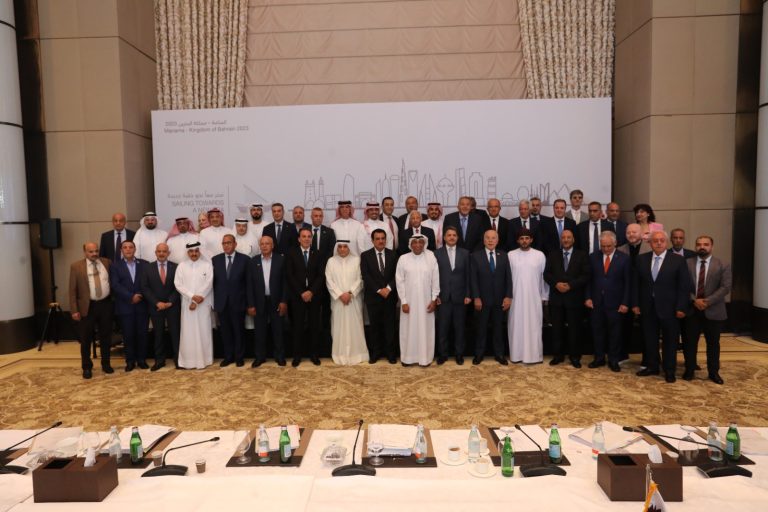Cairo – This week, in a meeting held in Manama, the capital city of Bahrain, the Board of directors of the Union of Arab Chambers (UAC) highlighted the role played by the Arab private sector in the development and progress of the region’s economies. Topics relating to digital payments, food security and logistics guided the meeting’s recommendations.
The secretary-general of the UAC, Khaled Hanafy, said the size of the Arab private sector’s contribution to job creation is around 75% of total vacancies. He also stated the sector is responsible for the same percentage of the Gross Domestic Product (GDP) of Arab countries.
The UAC meetings resulted in a series of recommendations entitled “Bahrain Declaration for the Arab Private Sector.” The board presidents of the Arab Chambers participated in the drafting to submit it to the leaders of their countries on the occasion of the Arab Economic and Social Development Summit, scheduled to be held in Nouakchott, the capital of Mauritania, in November.
The Bahrain Declaration highlighted the need to redouble efforts to achieve Arab economic and social integration, a fundamental pillar to promote the countries’ joint progress and development. Therefore, the region’s nations could become more capable of integrating into the global economy, with more flexibility to deal with international challenges.
The Bahrain Declaration emphasized the importance of improving social conditions by supporting social security networks through joint national and Arab foundations to face the reverberations of global economic crises and to promote the four freedoms that reinforce Arab economic integration: Circulation of people (through the granting of multiple long-term visas to businesspeople), circulation of capital and ease of transfers, circulation of goods (through the removal of non-customs barriers, standardizing specifications and standards and unifying procedures for registration) and free movement of services (through the approval of the Agreement for Commercial and Services Liberalization).
The declaration also recommended developing an Arab strategy for digital transformation and the circular and participatory economy based on the Fourth Industrial Revolution. The objective of that strategy is to create legislative and technological digital infrastructure, implement energy interconnectivity projects between Arab countries, develop a joint Arab plan for renewable energy, overcome barriers faced by the transport sector, develop road, rail, and maritime transport and interconnect land, sea and air networks between Arab countries, as they are essential pathways for the circulation of trade, tourism, investment and employment in the Arab region.
The UAC board members drew attention to the need to channel public and private investments in the modernization of strategic Arab ports, linking them to a network of maritime routes connecting to other Arab countries and the world. They also emphasized the importance of focusing investments on constructing logistics zones connected to industrial and agricultural production complexes that produce added value with the support of an Arab commodity exchange.
The Bahrain Declaration also highlighted the need to coordinate institutions’ efforts with joint Arab activity, Arab governments, and the private sector to protect Arab food and water security. It emphasized the need to increase the flexibility of the agricultural sector, rationalize water consumption, adopt modern farming technologies and smart agriculture, and develop logistical zones focused on trade and investments in the food sector.
The declaration also emphasized the need to develop a realistic and gradual strategy based on a roadmap to achieve the region’s economic integration, starting with establishing a large Arab free trade area, followed by the customs union stage, until reaching a common market.
Translated by Georgette Merkhan & Elúsio Brasileiro




